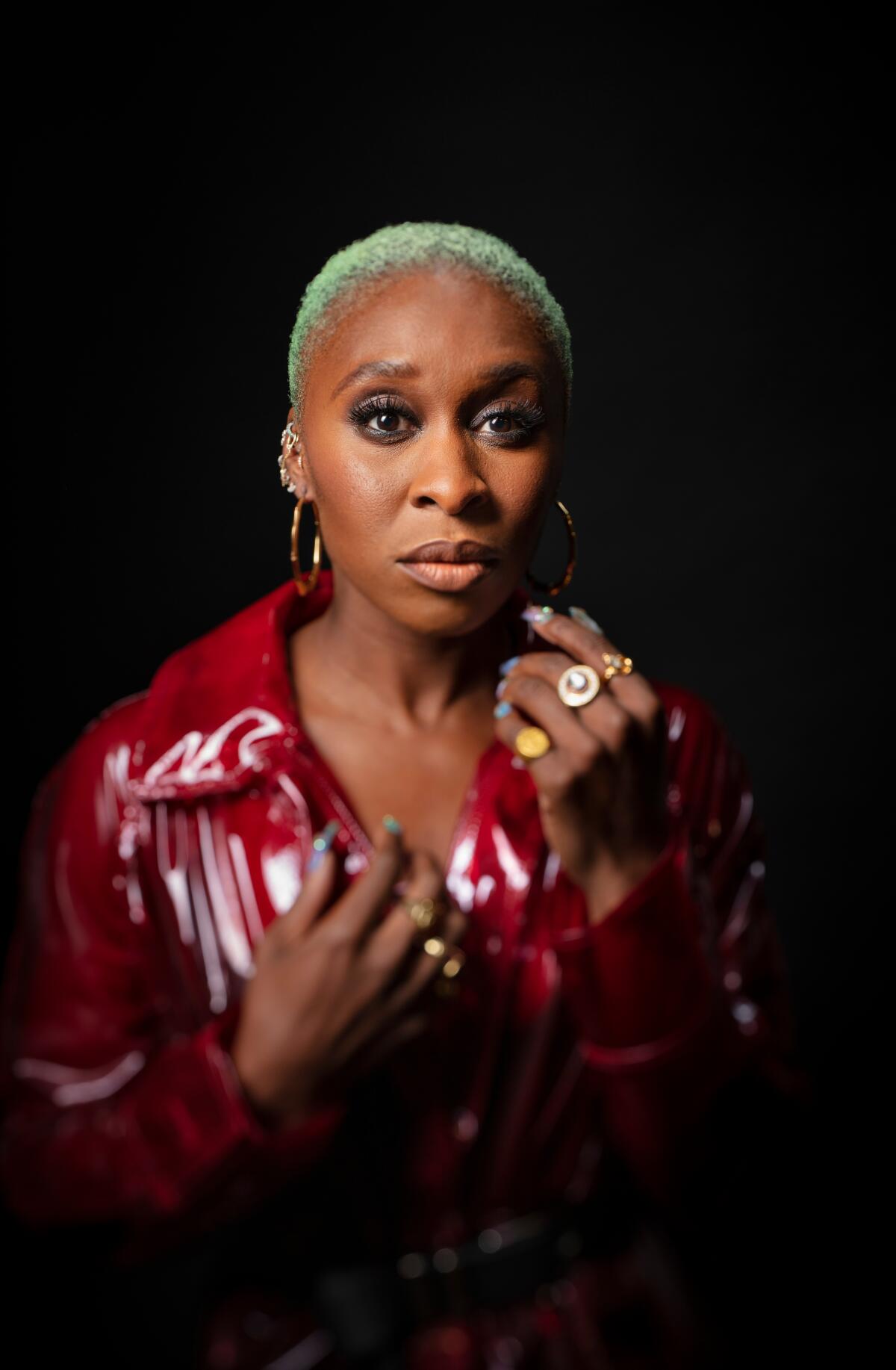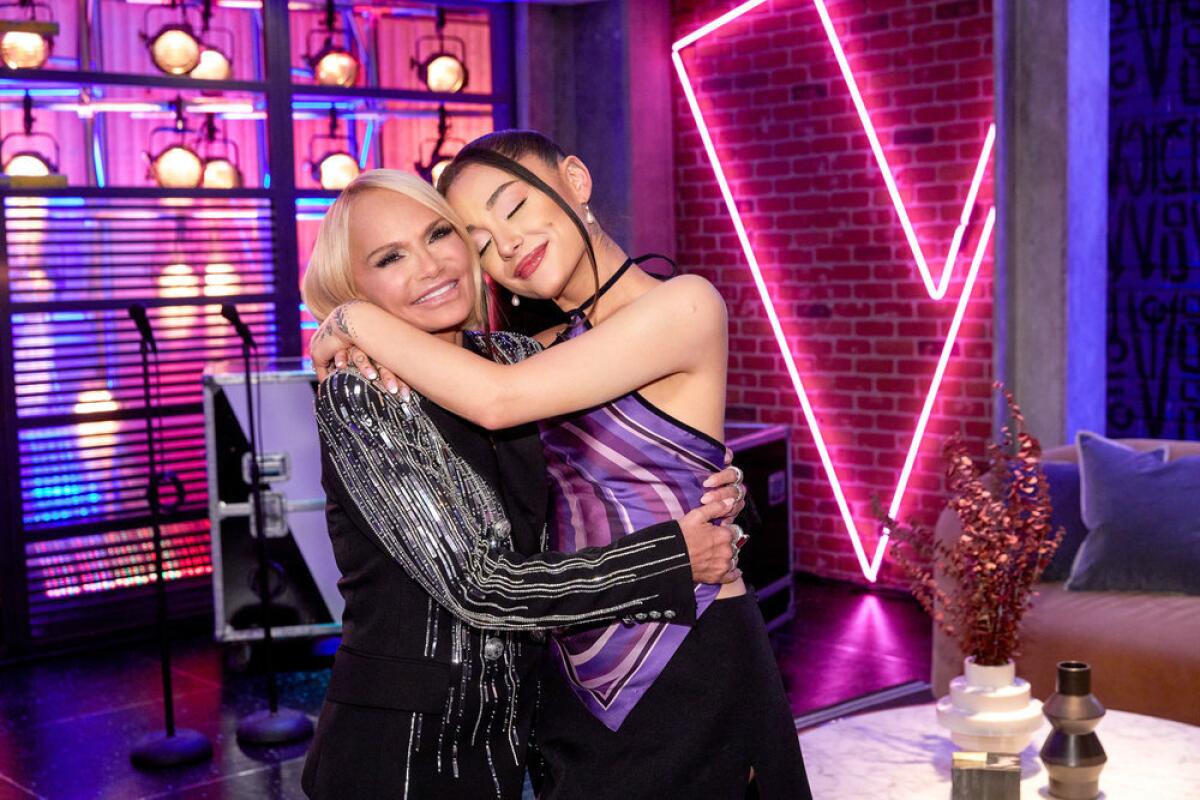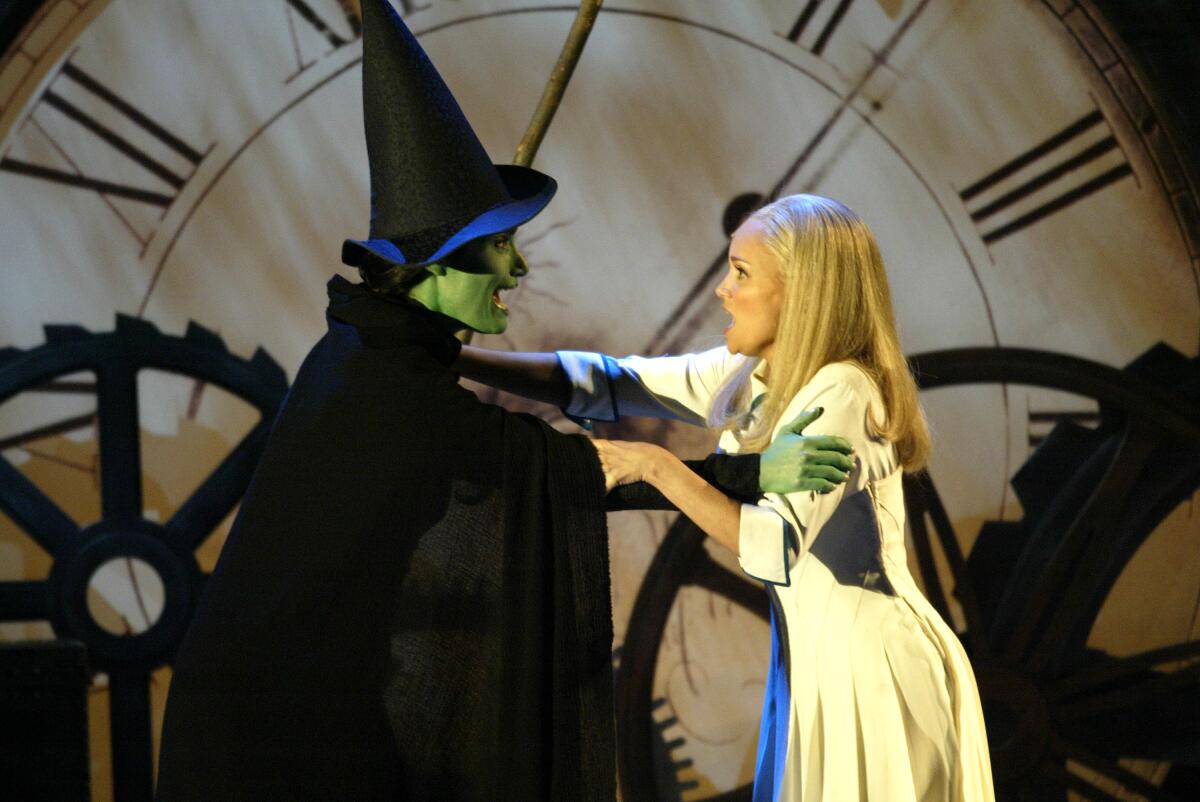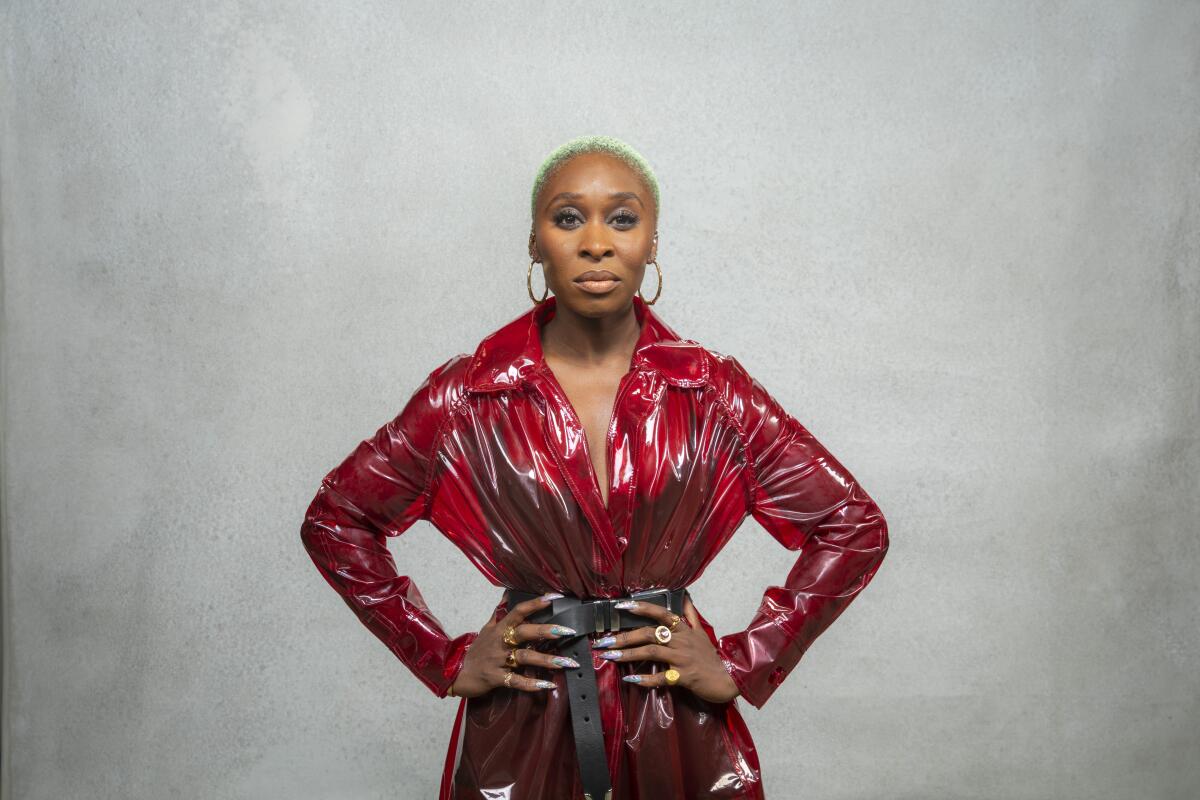Commentary: Why it matters that Cynthia Erivo is playing Elphaba in the ‘Wicked’ movie

- Share via
After years of speculation, the official news broke that Cynthia Erivo and Ariana Grande are starring in Universal’s film adaptation of the hit musical “Wicked” — as Elphaba and Glinda, respectively.
“Honored doesn’t even begin to cover it. I cannot wait to hug you,” Grande wrote to Erivo in a message sent with flowers, which Erivo shared on Instagram. Likewise, Erivo wrote to Grande, “The part was made for you, I look forward to sharing this musical journey with you.”
The casting news is a major advancement for the long-gestating project, which has been in the works since shortly after “Wicked” opened on Broadway in 2003. It remains the fifth longest-running show in Broadway history, having been seen by over 60 million people worldwide and amassed over $5 billion in global sales. (The stakes are high for the “Wicked” adaptation considering the source material’s wide appeal, as Universal is coming off recent movie musical strikeouts with “Dear Evan Hansen” and “Cats.“)
Set before Dorothy’s arrival in “The Wizard of Oz,” the musical from composer-lyricist Stephen Schwartz and book writer Winnie Holzman centers on the women who would become Glinda the Good Witch and the Wicked Witch of the West and the friendship they shared since adolescence, until the world begins to praise one of them and villainize the other.
It’s no secret that Grande has long loved the show — she first saw it as a child and even tweeted 10 years ago that she’d love to play Glinda someday. Kristin Chenoweth, who originated the more comedic role of the Good Witch on Broadway, has since become her mentor, on “The Voice” and in real life. “She’s funny! I don’t think a lot of people realize how funny she is,” Chenoweth recently told The Times of Grande.

What might be more of a surprise to devout “Wicked” fans is the casting of Erivo. Originally played by Idina Menzel, the green-faced character of Elphaba is essentially an activist who fights for the oppressed and is discriminated against because of the color of her skin. In one song, she wishes that the wizard would offer to alter her appearance: “And since folks here to an absurd degree seem fixated on your verdigris / Would it be all right by you if I de-greenify you?”
The centering of Elphaba, who is deemed an outsider in the story’s society, is integral to the show’s wide appeal and ongoing commercial success.
“Anyone who is of an ethnic minority, who is Black or Jewish or gay, or a woman feeling she grew up in a man’s world, or anyone who grew up feeling a dissonance between who they are inside and the world around them, will identify with Elphaba,” said Schwartz in Carol de Giere’s biography of the composer-lyricist. “Since that’s so many of us, I think there will be many of us who will.”
Throughout the theater industry, Elphaba has served as a notable stepping stone for dozens of performers, and is often their first chance to play a lead in a Broadway musical. Stephanie J. Block, Caissie Levy, Jessica Vosk, Lindsay Mendez and Carmen Cusack are just a few of the actors who played the Wicked Witch of the West and have gone on to get first-run roles in other Broadway shows.
It’s easy to see why: Elphaba remains coveted as one of most multi-dimensional starring roles for women in musical theater, and touts emotionally and vocally ambitious tracks like “The Wizard and I,” “Defying Gravity” and “No Good Deed.”

Still, the vast majority of women who have played her have been white. In fact, only one Black actor has ever nabbed a full-time gig as Elphaba in any production — Alexia Khadime, who played the role on London’s West End from 2008 to 2010.
“A lot of racism came with that because I was a Black girl playing the role that was predominantly played by a white girl,” she told Marie Claire last year. “There were definitely people who made comments that I was taking away the white roles. At the time I played Elphaba, Obama was president. Then the comments were, ‘Just because we’ve got a Black president doesn’t mean we have to have a Black Elphaba.’
“It’s a show that can and should have people from everywhere,” she continued. “The beauty of our work is that different people are able to step into the role, and we see a new interpretation. Your background and who you are is what makes the role you step into slightly different, and that’s the future of it. That show is able to stay alive and never be stale. And that’s often forgotten.”
Casting a Black actor as Elphaba is long overdue, and Erivo is more than suited to play her. Before she lined up onscreen roles as Harriet Tubman, Aretha Franklin and the Blue Fairy in the upcoming “Pinocchio,” Erivo regularly spurred mid-show standing ovations during her Tony-winning performance in 2015’s “The Color Purple.”

Just last month, Erivo “dug deep, then brilliantly deeper,” wrote Times classical music critic Mark Swed of her rendition of Leonard Bernstein’s “Somewhere” with the Los Angeles Philharmonic. “The somewhere she sought — with powerful, low earthly tones and strikingly unearthly high ones, her timbre changing to meet the expressive needs of each word while her intonation remained remarkably true — was not out of reach, not outside of us all, but within. It was a spectacular performance.”
“Wicked” director Jon M. Chu (“In the Heights”) previously implied the movie’s color-conscious casting in a recent interview with The Times.
“Right now, our definitions of history are changing — we’re in a very important moment about getting comfortable with being uncomfortable,” he said earlier this year. “‘Wicked’ is all about that: [Elphaba] revisiting the innocence of what we think the world is, and discovering that it’s more complicated than that. And what does living in a bubble mean for Glinda? People don’t just build a bubble for no reason, you build a bubble because you don’t want to deal with something.
“Now that bubble is bursting all around us, which can be seen as a scary, scary thing,” he continued. “You can feel sorrow for the things that are going away, you can feel anger for the things that have happened, you can feel vengeance for the things you want justice for. Sometimes violence occurs — good or bad, it happens. I think this movie has an opportunity to show the world that change — real, true change — is OK, and getting through it with grace and forgiveness can make all the difference.”
Given the musical’s track record of Elphaba onstage, casting a Black actor — particularly, the immensely talented Erivo — proves this movie is off to an encouraging start. As the character sings in the show: “Everyone deserves the chance to fly.”
More to Read
Only good movies
Get the Indie Focus newsletter, Mark Olsen's weekly guide to the world of cinema.
You may occasionally receive promotional content from the Los Angeles Times.











